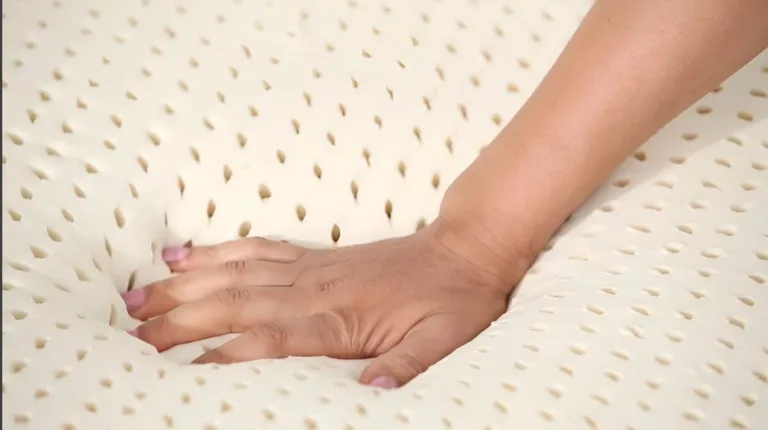Does Florida Ban Kratom? The 2025 Legal Breakdown You Need to Know
Ask 10 people about kratom in Florida and you’ll probably get 12 opinions. Some swear it’s banned, others think it’s totally legal, and then there’s the guy who heard Sarasota is “a no-fly zone.” So, what’s the real deal in 2025?
Let’s break it down in real terms: where kratom stands today, who can buy it, and why Florida’s laws just got a whole lot more specific about what kinds of kratom products are okay… and which ones can get you into trouble.
Is Kratom Legal in Florida in 2025? The Current Overview
First things first: if you’re an adult, kratom is legal in most parts of Florida, yes, seriously. But there’s a catch or two. Let’s walk through the rules.
In 2025, Florida still allows the sale, possession, and use of kratom statewide for adults 21 and over. This legal status is thanks to the Florida Kratom Consumer Protection Act (KCPA), which rolled out a few years ago to regulate how kratom is sold and who can buy it. The KCPA makes sure that kratom isn’t being peddled to minors, mislabeled, or dangerously altered.
However, Sarasota County has taken a different route. Since 2014, it’s held firm on its own ban, making it illegal to sell or possess kratom there. So while it’s legal across most of the Sunshine State, you definitely don’t want to bring it with you on your beach day in Sarasota.
Looking for safe, compliant kratom products that meet state guidelines? Shops like Happy Go Leafy stay on top of Florida law and offer kratom that’s lab-tested and responsibly sourced.
Understanding Florida’s 2025 Kratom Legislation and Bills
Big changes nearly hit the books in 2025, but the most talked-about bill didn’t quite make it. That said, a separate emergency rule did change some major things.
House Bill 1489 was proposed earlier this year with some tight new rules on kratom sales and production. It aimed to clamp down on ingesting kratom near schools, ban synthetic versions, and add stricter testing requirements. But the bill never made it past the committee phase, it officially died in June 2025.
While HB 1489 stalled, emergency rule 2ER25-2 slipped in through the back door. It classifies products with more than 400 parts per million of 7-hydroxymitragynine (7-OH) as Schedule I, effectively banning high-potency synthetic kratom products in Florida.
What is 7-Hydroxymitragynine (7-OH) and Why Does Florida Ban It?
Not all kratom compounds are treated equally. One compound in particular, 7-hydroxymitragynine, is now under serious scrutiny.
7-OH is a naturally occurring alkaloid in kratom, but it’s only there in tiny amounts in the unprocessed leaf. The problem? It acts a lot like opioids and can be concentrated into much more potent products, which Florida now considers dangerous.
Emergency rule 2ER25-2 made it clear: if a kratom product has over 400 ppm of 7-OH, it’s considered a Schedule I controlled substance. That’s the same category as heroin or MDMA. So unless you’re using whole-leaf kratom or a product that’s been verified to fall under that concentration, it’s not worth the risk.
Differences Between Natural Kratom Leaf and Synthetic/Concentrated Kratom Products
There’s a clear difference between tossing some kratom powder in your tea and taking something engineered in a lab. Florida’s laws reflect that.
Natural kratom leaf, dried, crushed, or powder, is still legal if it meets all of Florida’s labeling and content standards. What isn’t? Synthetic or concentrated kratom products, especially those that boost 7-OH levels far beyond what naturally occurs.
While some of these synthetic items mimic the opioid effects users seek, they’re also what regulators are most concerned about. These products carry a much higher risk of addiction, side effects, and regulatory scrutiny.
How Florida Enforces Kratom Regulations and Penalties for Violations
Florida isn’t just dropping rules and hoping people read the fine print. The state is actively looking to enforce the law, and there are real consequences.
The Florida Department of Agriculture and Consumer Services (FDACS) handles most retail enforcement, while the Attorney General’s Office plays cleanup for bigger violations. If you’re caught selling kratom to someone underage, or your products are found to contain banned levels of 7-OH, you could face big trouble, ranging from fines to criminal charges.
Retailers at gas stations, vape shops, and convenience stores are often visited by state inspectors. And products that don’t meet standards? They’re confiscated and destroyed as contraband.
What Sellers Need to Know: Lab Testing, Packaging, and Compliance
If you’re a kratom vendor in Florida (or planning to ship here), your packaging game needs to be tight. The KCPA lays out exactly what’s required.
First, every batch needs to be lab tested. Not just any lab will do, it has to be a certified facility that checks for contaminants and confirms that 7-OH levels stay below the legal limit. Labels also need to clearly show product content, usage warnings, and age restrictions.
One more thing: if you’re shipping across state lines into Florida, make sure your product complies with Florida laws. Otherwise, you could be flagged by inspectors and face serious consequences.
Health and Safety Concerns Surrounding Kratom Use in Florida
A lot of Florida’s recent crackdowns make more sense when you look at the health concerns behind them, especially around 7-OH.
The FDA and Florida health officials point out that 7-OH shares chemical similarities with opioids, increasing the risk of dependency and overdose if taken in high concentrations. That’s why they drew the line at 400 ppm, it’s a move meant to protect public health while still allowing access to natural kratom.
The key is moderation and product safety. Reputable vendors only sell kratom that’s tested, labeled, and approved within the state’s standards. This makes it easier for consumers to make informed choices and avoid health risks.
How Florida Compares to Other States on Kratom Regulation
Florida’s kratom rules land right in the middle of the spectrum. Not the loosest, not the strictest, but definitely headed toward tighter oversight.
Texas, for example, is taking a much tougher stance. Starting in September 2025, synthetic kratom will be completely banned there, and all products must pass rigorous lab certification. Meanwhile, other states still have almost no regulation, while a few ban kratom completely.
Florida’s new Schedule I classification for high-7-OH products puts it ahead of the curve. Vendors here are adapting fast, offering compliant options like Trainwreck Kratom, which are carefully blended and lab-tested to meet state rules.
What Consumers Should Do: Staying Compliant and Safe
Buying kratom in Florida in 2025? Good, it’s legal. But that doesn’t mean it’s a free-for-all. Here’s how to stay safe and off the radar.
- Only buy from best kratom vendors who test their products and comply with the KCPA.
- Check the label. Make sure alkaloid concentrations, age restrictions, and warnings are printed clearly.
- Know your county laws. Avoid carrying kratom in Sarasota County, it’s still banned there.
- If a product smells fishy or lacks basic labeling, skip it. It may contain synthetic or banned substances.
If you’re not sure whether a product is legal or safe, it’s worth taking five minutes to look it up or contact the seller. A little care now beats a courtroom visit later.



